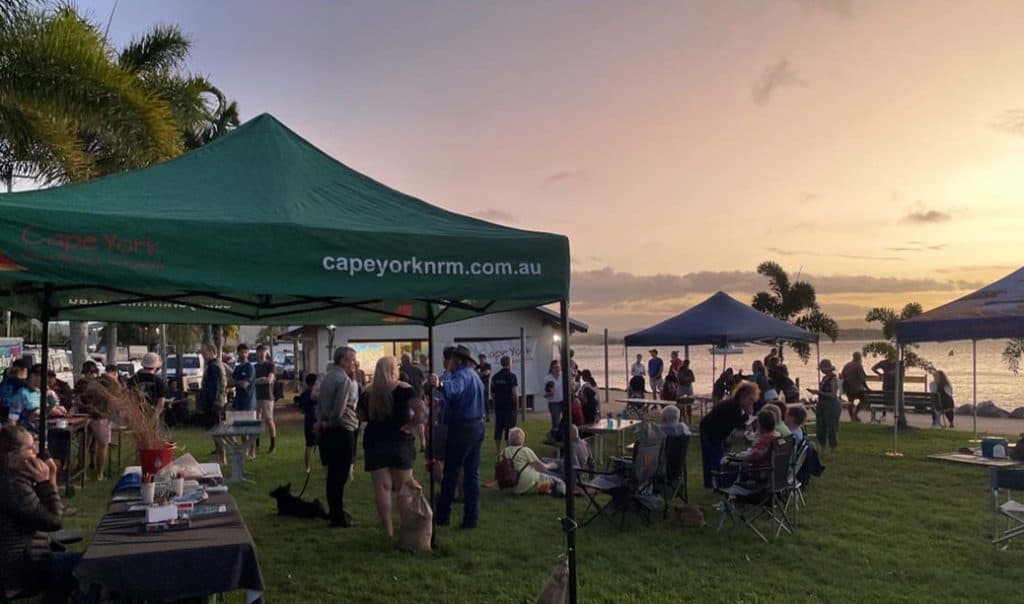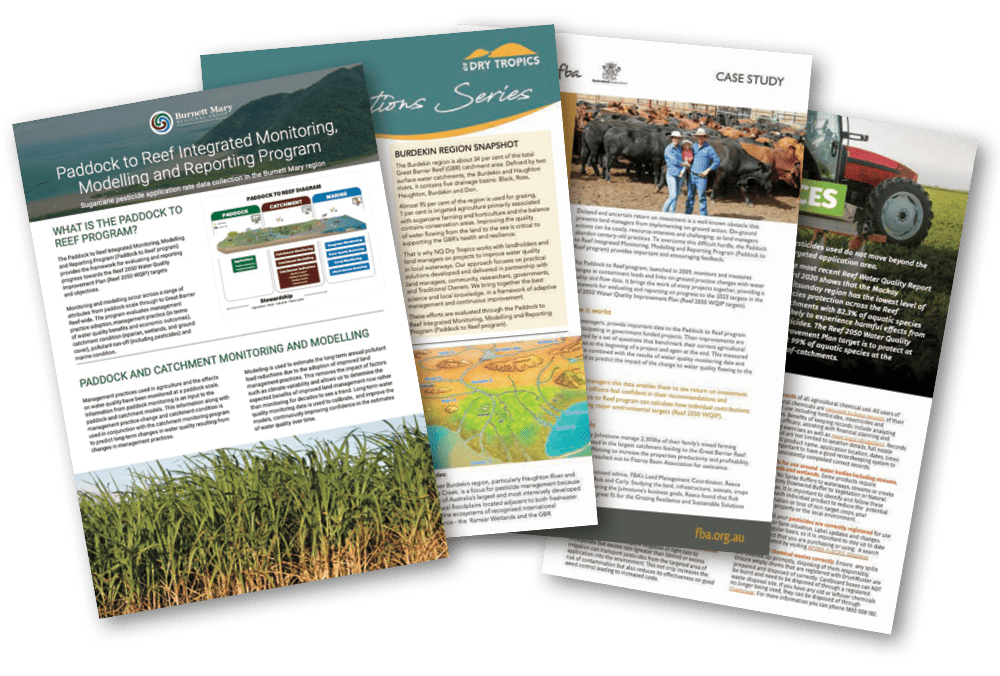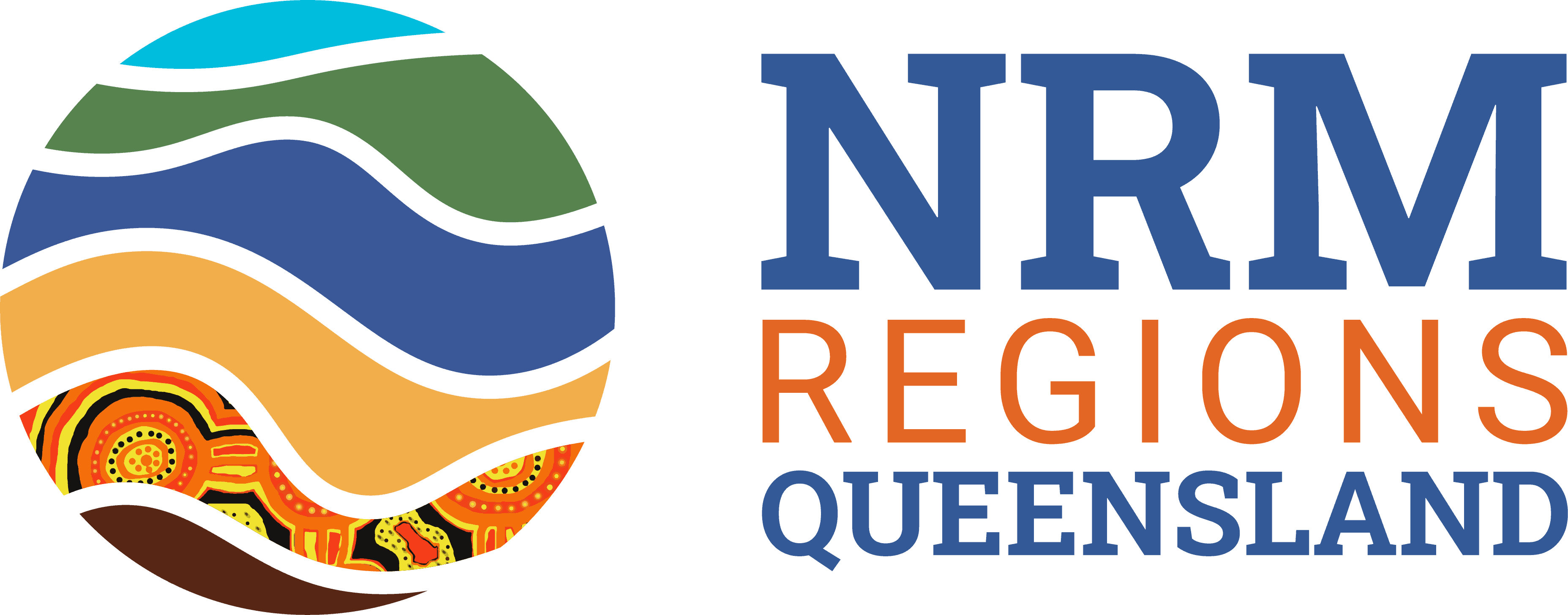The Paddock to Reef Integrated Monitoring, Modelling and Reporting Program, otherwise known as Paddock to Reef or P2R, is a world-class initiative uniting 20 organisations all working together to measure and report on water quality factors impacting the health of the Great Barrier Reef.
The program evaluates and reports on progress towards the Reef 2050 Water Quality Improvement Plan targets through the Reef Water Quality Report Card and is hosted by NRM Regions Queensland.
The Paddock to Reef program evaluates:
- Management practice adoption, including social factors that influence adoption
- Manage practice effectiveness in terms of both water quality benefits and economic outcomes
- Catchment condition including riparian, wetlands and ground cover
- Pollutant runoff and marine condition including coral, seagrass and water quality
Belinda “Billy” Thomson is employed by NRM Regions Queensland and funded by the Queensland Government to coordinate the work of the six regional NRM organisations engaged in the program. In the past 12 months, Billy’s efforts have focussed on four key areas: forums, training, communication around the program and data collection.

Billy said First Nations involvement in the forums had grown this year as a result of recommendations from last year’s events.
“We had First Nations people presenting and attending at Burnett Mary, Cape York, Mackay-Whitsunday and Fitzroy events,” she said, “and our goal next year is to ensure good representation in Working Groups to plan for the events as well.”
Training
Training is provided for new staff members and others involved in the Paddock to Reef program. This ensures that all project staff are collecting data in a consistent manner. People are upskilled around data collection, software use and how to use GIS platforms.
A major two-day training event was delivered in February 2022 that included the following sessions:
- Paddock to Reef introduction
- Paddock to Reef questions and P2R Projector for Cane
- Paddock to Reef questions and P2R Projector for Grazing
- Gully and Streambank Toolbox
- Human dimensions and social indicator data collection
144 people registered for this training session including representatives from Australia Banana Growers’ Council, Total Grower Services, Herbert Cane Productivity Services, Farmacist, MSF Sugar, Tully Cane Growers, Mackay Area Productivity Services, TropCrop, Catchment Solutions, Green Collar, Sugar Research Australia, Mary River Catchment Coordinating Committee, Bundaberg CANEGROWERS, Great Barrier Reef Foundation, Office for the Great Barrier Reef, DES and DAF and all reef regions.

“Cape York NRM held a forum and water quality fair on the banks of the Endeavour River.”
Communicating about Paddock to Reef
Each region develops its own strategy for communicating about region-specific components of the Paddock to Reef program and the Reef Water Quality Report Card when it is released. In addition, an outcome of the regional integrated science forums is the identification of knowledge gaps. Regional NRM organisations also then develop communication tools to fill those gaps.
Burnett Mary Regional Group produced a fact sheet on pesticide data, why it’s collected and how it is used. Cape York ran water quality monitoring workshops for future farmers, still in high school. Terrain undertook media activities including via radio and print focused on the 2020 report card and Reef Catchments produced a fact sheet on pesticide best practice. Fitzroy Basin Association profiled a family engaged in changing their land management practices and NQ Dry Tropics trialled an industry-specific virtual conversation series.

A range of communication products published by Regional NRM organisations engaged in the Paddock to Reef Program.
Data collection
Through this part of the program, officers visit properties in each catchment within each region and collect information on how much pesticides and what types are being applied. This information is then used to ground truth paddock models. Modellers use this information to ensure models are as accurate as possible.
Previously the program collected pesticide and fertiliser data for bananas, cane and grain. This year the same data was collected for banana and grain commodities but only pesticide data was collected for cane.
The management practice targets is also being reviewed by consultants at the moment, so an analysis of data collected this year is yet to take place. Data collected to date will be used to help develop new models moving forward.
“The Paddock to Reef program is all about collaboration.” – Billy Thomson
Regional Paddock to Reef coordinators
Cape York NRM: Natalie James and Michael Goddard
Terrain NRM: Fiona Barron
Reef Catchments: Kymberley O’Neil
NQ Dry Tropics: Jade Fraser and Rob Hunt
Fitzroy Basin Association: Daniel Boschoff has picked up the reins from Barb McKechnie
Burnett Mary Regional Group: Hannah Russell
